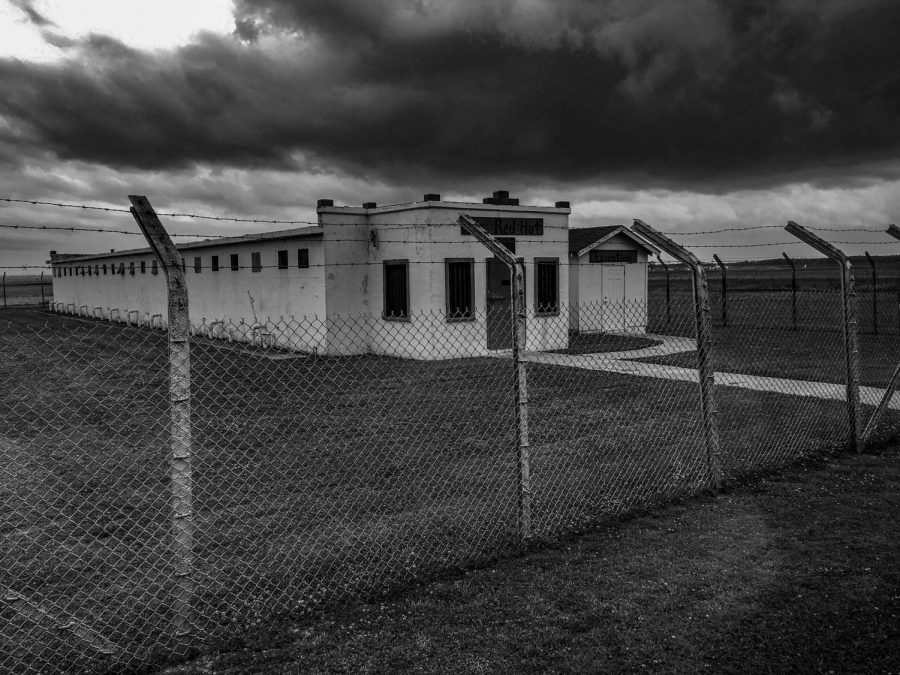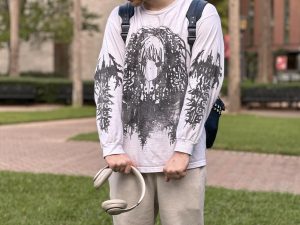Opinion: Lockdown has been hard, now imagine life in solitary confinement
Clouds shadow the Red Hat Cell Block, a former restrictive housing unit at Louisiana State Penitentiary. The prison is the largest in Louisiana. Photo credit: Michael Bauer
October 30, 2020
There is little doubt that the social distancing and “lockdown” requirements to prevent the spread of the COVID-19 virus have been hard on Americans’ mental health. The CDC reported in August that the prevalence of anxiety amongst U.S. adults was three times higher in June 2020 than March 2020, and that self-reports of depression rose four times in that time period.
The economic stress of the pandemic, coupled with anxiety and depression, have led to increased consumption of alcohol and drugs and elevated incidences of domestic violence. Even for people who have not lost their jobs and remain in the comfort of their homes, living in “lockdown” has been difficult.
Human beings are social beings, we need interactions with others to maintain emotional health and well-being, to feel we belong, to know that others care.
As hard as social isolation has been for many of us during the pandemic, try to imagine what it must be like to be locked in a six-foot by nine-foot prison cell with gray walls, a solid steel door, no window or clock and without any meaningful human interaction for weeks, months, years and even decades straight.
This is the reality confronting 80,000 to 100,000 incarcerated people in solitary confinement on any given day in the U.S. Extensive research has shown solitary confinement can inflict permanent psychological and neurological damage and lead to premature death after release. Instead of being a “last resort” measure used temporarily for safety reasons, oftentimes incarcerated persons are placed in solitary confinement for possessing contraband, testing positive for drugs, or using profanity.
Although it has become common practice in U.S. correctional systems, the use of solitary confinement, also known as lockdown, segregation, or restricted housing, has never been shown to reduce violence in prison. Because of the severe physical and mental damage that extreme isolation can cause, the United Nations considers solitary confinement to be torture if it lasts more than 15 days.
Not only does Louisiana lead the world in its incarceration rate, the Vera Institute for Justice found that in 2016, 17.4% of people in Louisiana prisons were in solitary—almost FOUR times the national average. In addition, African Americans were significantly overrepresented in solitary: 23.9% of incarcerated Black people versus 16.6% of incarcerated white people in Louisiana were in solitary.
The Jesuit Social Research Institute at Loyola helped produce a major report in 2019 on the use of solitary confinement in Louisiana, Louisiana on Lockdown. Loyola students from Dr. Ashley Howard’s fall 2017 history class, Incarceration in America, provided an immense contribution to the project by entering one-third of the 709 survey responses in a data base for analysis.
A major finding of the report is that more than 77% of respondents said they had been held in solitary for more than a year, and that 30% said they had been in solitary for more than five years. Nationally, less than 20% of all individuals held in solitary had been there for one year or more.
Survey respondents painted a harrowing picture of their lives in solitary confinement, including mental deterioration, denial of medical care, filthy cells and physical abuse by staff. Carl (a pseudonym) wrote:
“These cells drive men mad. I have personally witnessed one man take his life, another tried to by running the length of the tier and smashing his head into the front bars. Sadly for him he still lives, if you can really call it that. Point is the cells are killing men and they know it… Any man that’s spent five to 10 or more years in these tiny cells should be killed, that includes me, we are no longer in any way shape or form civilized… Too much hurt, too much pain, too much confusion, we are lost, lost from God, lost from reality.”
Fortunately, there have been recent positive developments regarding solitary confinement in Louisiana. A group of prison reform advocates, including JSRI, came together last April to form the Louisiana Stop Solitary Coalition. This past spring, a bill written by the coalition to limit solitary confinement for pregnant and nursing women was passed by the Louisiana legislature and signed into law by Governor Edwards.
Now the coalition is seeking signatures on a petition to Louisiana government leaders asking that they end the use of solitary confinement for all incarcerated people in our state.
When writing about fraternity and social friendship in his most recent encyclical, Fratelli Tutti, Pope Francis describes what, for me, are some of the best reasons why solitary confinement should be banned:
“Human beings are so made that they cannot live, develop, and find fulfilment except in the sincere gift of self to others. Nor can they fully know themselves apart from an encounter with other persons…No one can experience the true beauty of life without relating to others, without having real faces to love. This is part of the mystery of authentic human existence. Life exists where there is bonding, community, and fraternity.”
Let’s end the inhumanity of solitary confinement and work for a world where no incarcerated person is denied the right to authentic human existence through meaningful social interactions with others.







